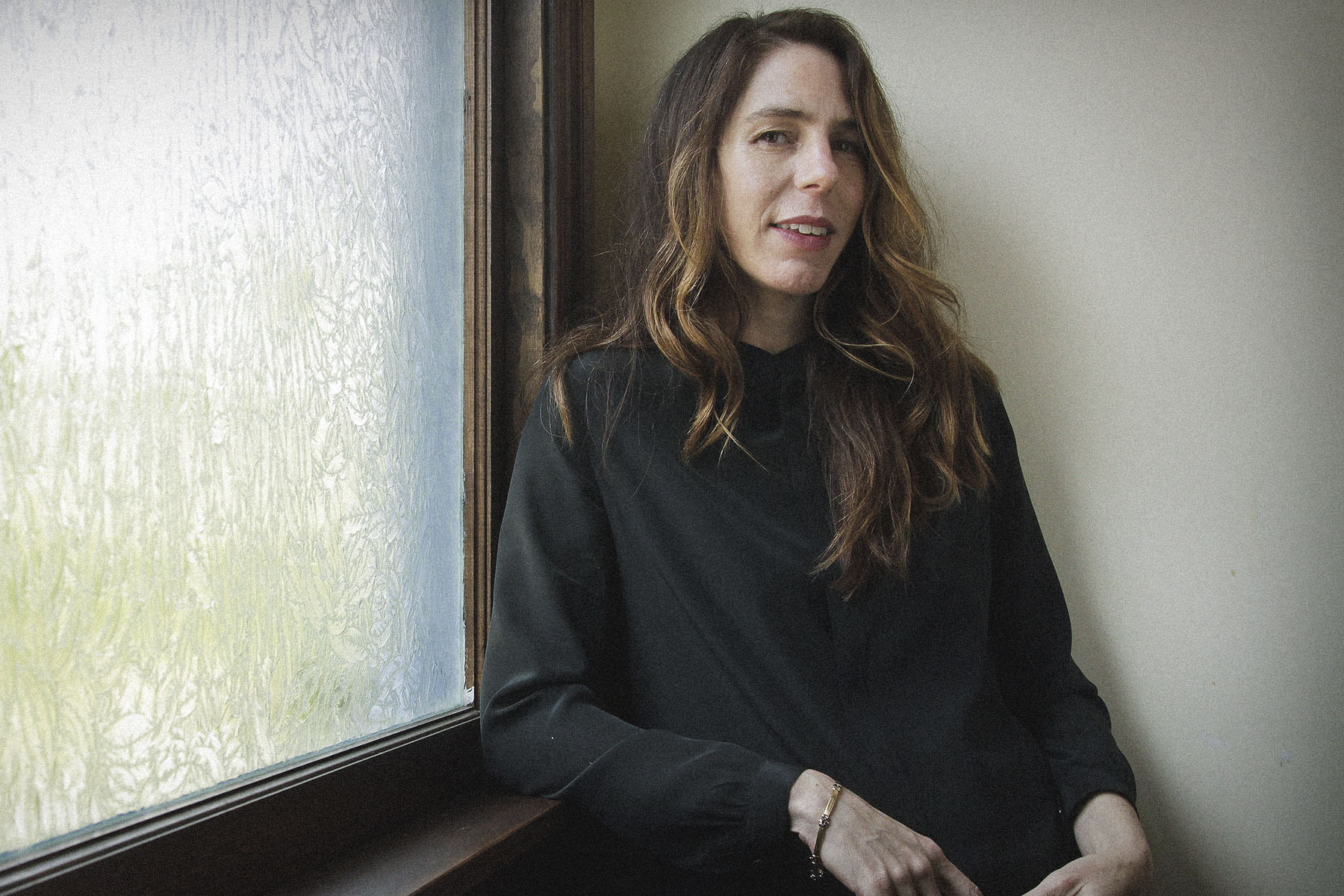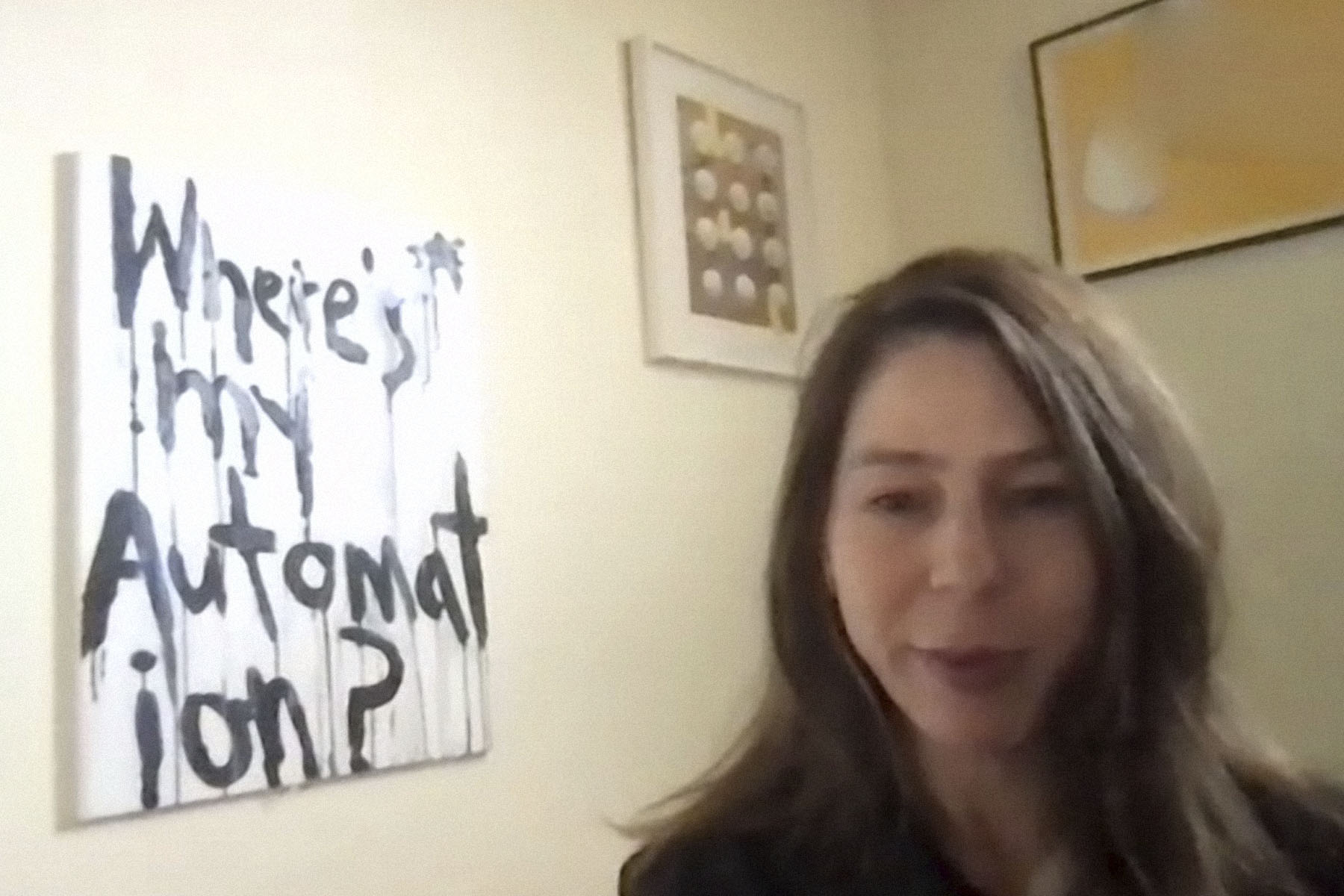
- Home |
- Search Results |
- Rachel Kushner on hard living and fearless writing
Rachel Kushner on hard living and fearless writing
Celebrated for her razor-sharp novels, now the author is releasing her first essay collection, The Hard Crowd. She talks to Kate Wyver about near-death experiences, partying with the Stones and refusing to be the 'moral centre' of her work.
"I don’t think of myself as a fearless person," says author Rachel Kushner, who once took part in a 1000-mile illegal motorbike race across the Baja Peninsula and crashed at 130mph. "It’s not that I’m less fearful than someone else," she clarifies, "but the kinetics of [riding], the feeling of it, the balance – it feels natural and normal if you're used to doing it."
Grit, death and speed are what greet readers at the starting line of Kushner’s new essay collection, The Hard Crowd. The high-octane opening essay, 'Girl on a Motorcycle', from 2001, was the 52-year-old’s first ever published piece (she was 33 at the time). In Kushner’s fiercely intelligent voice, The Hard Crowd compiles articles and essays written over the 20 years that followed, spanning literature, art, politics, and life in sharp-edged San Francisco. With essays originally published on platforms such as New York Times Magazine, Paris Review and Artforum, the book’s subjects are wide-ranging, illuminating 1970s Italian factory politics, the complexities of prison abolition and a riotous party with the Rolling Stones.
A few years after the motorbike crash, Kushner gave up her leather-clad gearhead lifestyle and became a writer. She wasn’t a pro rider – she’d been working in bars and clubs – but bike culture was a huge part of her life. "I wasn’t willing to die for something that I loved," she tells me frankly. The statistics made her choice clear. Nevertheless, proximity to danger is an undercurrent through the rest of her book. In her writing, she mentions people on the periphery of her life who have come to grim and brutal ends. She talks about prison in California and how the structure of incarceration is like "an invisible net that’s laid out over the whole state." She recreates her visit to Shuafat, a Palestinian refugee camp in Jerusalem in 2016, where she was far closer to violence than she realised at the time.
'I wait for that thunderbolt from Zeus that gives me the feeling that I know how to move forward.'
This trip to Shuafat is detailed in her second essay, 'We Are Orphans Here'. Recalling the generous welcome she had at the camp, she talks fondly of her guide, Baha Nababta, and the hours she spent looking through his wedding photos. It is the most moving piece of the whole collection. In contrast to 'Girl on a Motorcycle', which came from the start of her life as a writer, Kushner wrote 'We Are Orphans Here' as an established author with two novels under her belt. Her voice is recognisable despite the change in years: sharp, certain and unsentimental, with a gaze that is probing and direct.
The Hard Crowd is Kushner’s first book of nonfiction. Her first novel, Telex from Cuba (2008) presents the brewing revolution in the 1950s, and was a finalist for the National Book Awards. Her second, The Flamethrowers (2013), is a cinematic look at a life of art and engines in 1970s Milan and New York. It was The Flamethrowers that brought her international acclaim – Telex from Cuba was only published in the UK after The Flamethrowers' success – with The New Yorker’s James Wood calling it "scintillatingly alive". Her third novel, The Mars Room, about a woman sent to prison with two life sentences for murdering her stalker, was Booker-shortlisted. "Kushner is a young master," wrote George Saunders of The Mars Room. "I honestly don’t know how she is able to know so much and convery all of this in such a completely entertaining and mesmerising way." Now, she has a reputation as a sharp and assured literary American voice.
The Mars Room was Kushner’s first contemporary novel, a task she found much more difficult than writing about the past. "In the past you can see the way that character is shaped by the flows and drift of history," she says. "In the present it’s harder to perceive such a thing. But people aren't just ahistorical siloes right? They are shaped and built by the circumstances of their birth, the luck of it." Elements of her fiction writing resonate strongly in The Hard Crowd: the impact of place on a person, unjust structures of power, the lottery of life.

Fiction, she admits, she has to work harder for. "I wait for that thunderbolt from Zeus that gives me the feeling that I know how to move forward. It’s unmistakable when it’s happening and it makes the writing so easy. But those days are few and far between. I move through the world with this filter and everything is just the novel, the novel, the novel."
Nonfiction, on the other hand, is less mysterious. "It’s such an inelegant category," she says, "like the thing that isn't, that's all nonfiction is, right? The thing that isn't fiction." But long-form features have their own challenges. "You have to be gentle and persuasive and seductive, and use parts of yourself to try and get [the reader] to go along with your ride."
The essays in The Hard Crowd are not arranged by theme or chronology, both options to her seeming "arbitrary". Instead, Kushner wanted the start of each piece to pick up from the end of the one before. She reworked each one so that they flow, "like passing the baton from essay to essay." And so we leap between bikes, refugee camps and prisons, contemporary art, boat wrecks and bars. "All of those essays are different facets of one sensibility," she says, "a person learning and absorbing what she's learnt from people and art and literature and politics."
Buy the books
A new essay completes the collection. Sharing its title with the book, Kushner looks back on her time growing up in San Francisco in the Eighties and and the cast of eclectic characters she has known. This was where she first fell in love with motorbikes, watching with awe as her dad tinkered with vintage British bikes. In this essay, she introduces a framing idea that people are either born hard or soft. She places herself in the soft category, when so many of those around her were hard. "I looked up to and admired other people growing up who were free to destroy themselves in a way I was not," she says. "Now, looking back, those who were hard didn't end well. For the people whose star shines brightest early, it also burns out early."
Kushner herself is rarely the focus of her work. We only ever get snippets of the truly personal. "I think I'm more interested in other people than I am in myself," she says, "at least in terms of how I write and what I write about." Her work is honest, admitting when she doesn’t understand or made a choice that was easier for the narrative she was telling herself. "I'm sceptical of self-mythologising in non-fiction," she says, "where people position themselves as the moral centre of the work. I don’t want to do that."
Kushner writes about close friends and distant strangers with the same reverence as huge names. A selection of essays are dedicated to the work of Marguerite Duras, Jeff Koons and Nanni Belestrini, but the pedestal she puts them on also houses a tattoo artist she once lived with, a woman who disappeared from a film, and a guy who once electrocuted himself playing electric guitar in the rain. Each piece paints a vivid portrait of a new character, every individual treated with respect and a certain level of awe. Perhaps most adoration is reserved for her friend and painter, Alex Brown, who is the subject of her tender essay, 'Bunny'.
'I'm sceptical of self-mythologising in non-fiction, where people position themselves as the moral centre of the work. I don’t want to do that.'
"In writing this book," Kushner considers, "I started to think about the star qualities I've been witness to in the people I've known. That star quality doesn't derive from fame, because most of the people I’ve known aren’t famous. But they have shown a sort of very special quality to me, and I try to render that when I'm writing about other people. It's always like an homage to somebody."
Each essay in The Hard Crowd shares a sense of thoughtful reflection: there is a gap between the experience and her expression of it on the page, in which she inserts acute analysis and consideration. Whether writing about a friend, a political movement, or a photograph, Kushner’s writing is cool, detached and wildly clever.
"In my twenties," she thinks back, "I wanted to exist in the present tense. I was rooted in the present." Now she believes that writing creates a kind of distance. "I think that’s just part of being a writer," she says, "to be immersed in the world and also removed from it, somehow simultaneously."
What did you think of this article? Email editor@penguinrandomhouse.co.uk and let us know.
Image: Ricardo DeAratanha / Getty